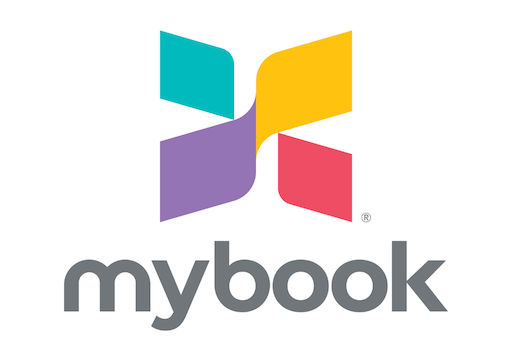
Tell Digital Marketing Requirement as Client: Exclusive Insights
In today’s fast-paced digital landscape, the phrase “tell digital marketing requirement as client” is more than just a catchphrase; it’s an essential step in ensuring a successful marketing strategy. Whether you’re a business owner looking to elevate your brand or a marketing manager tasked with persuading stakeholders, articulating your digital marketing needs can be a daunting but crucial task.
Having a clear vision and a set of specific requirements allows digital marketing agencies to craft strategies that truly resonate with your target audience. But what exactly should you consider when presenting these requirements?
Understanding Your Business Goals
First and foremost, it’s vital to understand your business goals before you even begin to tell your digital marketing requirements. Are you looking to increase brand awareness, generate leads, or improve customer retention? Each of these goals necessitates a different approach.
For instance, when I started my e-commerce venture, my primary goal was to drive traffic to my website. This meant my marketing strategy had to focus heavily on SEO, PPC, and social media ads. By knowing what I wanted to achieve, I was able to communicate my needs more effectively to the agency I collaborated with.
Audience Insights Matter
Once you have your goals in place, the next step is to understand who your audience is. A crucial part of telling your digital marketing requirements involves detailing your ideal customer profile. What are their demographics, interests, and pain points?
For example, when I worked with a startup targeting millennials, my digital marketing requirements included a social media strategy that focused on platforms like Instagram and TikTok. Understanding that my audience was tech-savvy and visually driven helped the agency tailor their content to meet my needs.
Specify Your Budget
One of the most uncomfortable topics for many clients is the budget. However, being upfront about your financial constraints is key to shaping a marketing plan that works for both parties.
When I launched my first digital marketing campaign, I hesitated to share my budget with the agency. But once I did, it allowed them to suggest realistic methods to achieve my goals. They recommended a mix of high and low-budget strategies, like influencer marketing and content creation, that produced impactful results without breaking the bank.
Define Success Metrics
Another pivotal aspect of telling your digital marketing requirements is specifying what success looks like to you. Are you focusing on CTR, conversion rates, or perhaps social media engagement levels?
During a project for a local café, we established clear KPIs that included an increase in foot traffic and online orders. We opted for a combination of local SEO and targeted Facebook ads, and having those metrics defined from the start helped us measure the effectiveness of our strategy over time.
Choose Your Channels Wisely
Your digital marketing requirements should also specify which platforms you want to utilize. With a multitude of options—SEO, email marketing, social media, content marketing—it’s easy to feel overwhelmed. However, clarity comes when you align these channels with your goals, audience, and budget.
For another experience, we focused on email marketing campaigns for a non-profit organization. Given their audience’s preference for informative content, we created tailored newsletters that highlighted upcoming events and volunteer opportunities, significantly boosting engagement levels.
Foster Open Communication
Lastly, maintaining an open dialogue throughout the process can enhance the relationship between client and agency. Regular check-ins can ensure your requirements are being met and adjust plans based on real-time performance data.
After collaborating with various agencies, I’ve realized that those who prioritized communication were far more successful in delivering results. Conversely, misunderstandings or vague directives often led to unsatisfactory outcomes.
Embracing an Evolving Landscape
Navigating the digital marketing world may feel daunting, but by effectively defining your requirements, you can partner with agencies that align closely with your vision. Remember, clear communication leads to better collaboration, and better collaboration drives success.
As industries evolve and consumer behaviors shift, adapting your digital marketing requirements will only become more pertinent. Stay informed, remain flexible, and don’t hesitate to ask questions. After all, it’s your brand’s story that’s on the line.
—
Frequently Asked Questions
1. What are the most important elements to consider when outlining digital marketing requirements?
– Focus on your business goals, audience insights, budget, success metrics, preferred channels, and the importance of open communication with your agency.
2. How do I determine my budget for digital marketing?
– Start by assessing your overall marketing budget and then allocate funds based on your priority areas, expected return on investment, and the strategies that align with your defined goals.
3. How can I measure the success of my digital marketing initiatives?
– Define specific Key Performance Indicators (KPIs) such as website traffic, conversion rates, and engagement levels. Regularly analyze these metrics against your initial goals to gauge success.
Related Posts
Switch Advertising Consultant: Effortless Tips for Success
Navigating the world of a switch advertising consultant can seem daunting, but with the right strategies, you can transform your brands approach to marketing effortlessly. Whether youre transitioning from...
Tell Digital Marketing Requirements: Essential Client Guide
Navigating the world of digital marketing can seem overwhelming, but learning how to tell digital marketing requirements as a client makes all the difference. This guide will empower you to clearly...












